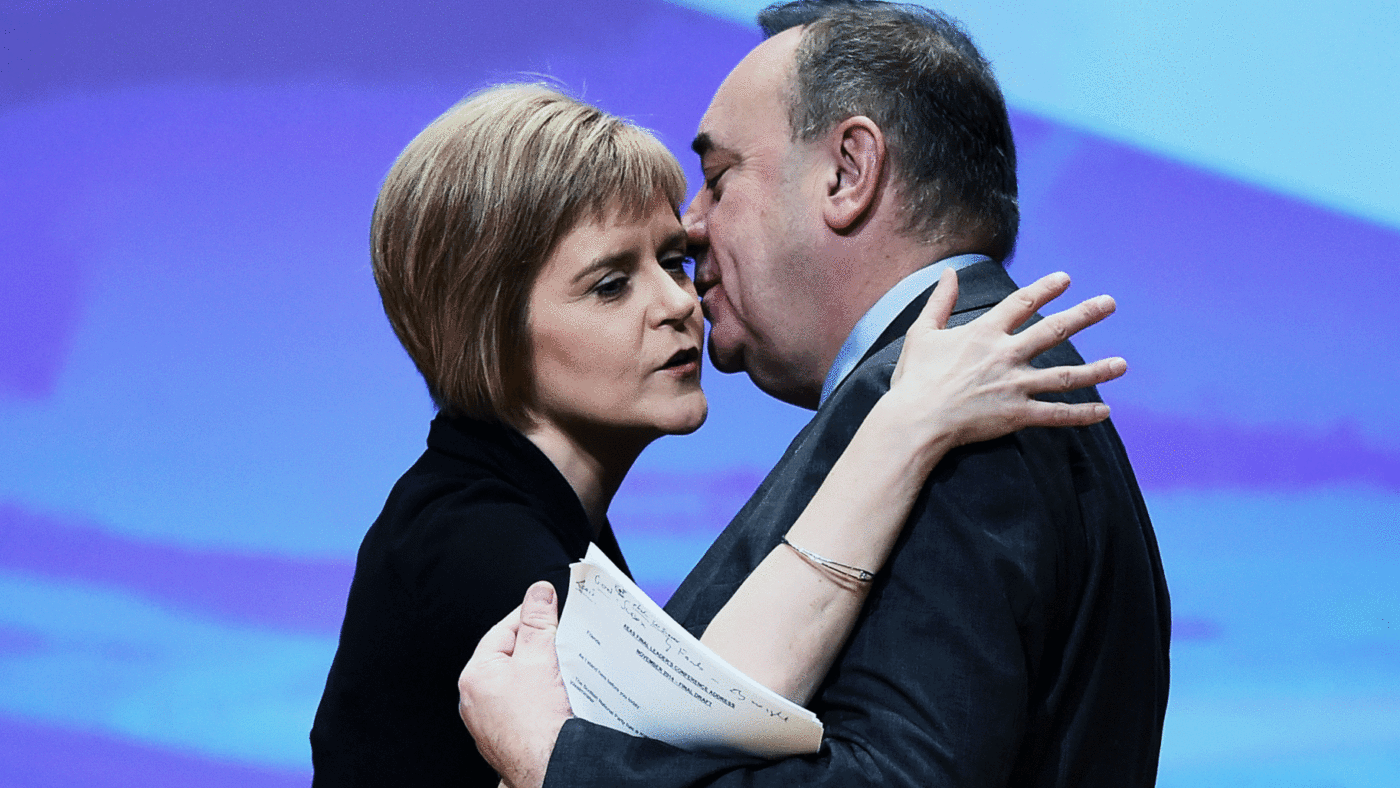It is a testament to how thoroughly two decades of devolution have balkanised the British media landscape that the unfolding fiasco that is the Scottish Parliament’s official inquiry into the ‘Salmond scandal’ is not getting more attention in the London press.
Even if the stench coming off the whole affair were not in itself enough to draw the eyes (if not the noses) of journalists from outside the Scotland beat, one might expect the severity of the potential implications for the SNP leadership – and thus, not implausibly, for the future of the United Kingdom – to do so. And yet.
On the surface, the Holyrood inquiry is about the Scottish Government’s handling of allegations of sexual impropriety levelled against the former First Minister. These were so badly handled that Salmond ended up taking the whole process to court, where he won. The proceedings were stamped as tainted with “apparent bias” and he was awarded more than £500,000 of public money in costs.
Yet the more interesting questions relate to his successor and her administration. Did the Scottish Government receive legal advice to the effect that it would lose Salmond’s judicial review, yet plough on anyway at great expense to the taxpayer? And just when did Nicola Sturgeon first find out about the allegations against Salmond anyway?
This latter question, in particular, seems to be tying Bute House in knots. For starters, MSPs are being asked to believe that when the SNP first became aware of the issue, nobody thought to inform either the party’s leader or its chief executive, Peter Murrell, who happens to be her husband.
Sturgeon’s own timeline is disputed. Geoff Aberdein, one of Salmond’s key aides, says that he informed her of the allegations several days before the face-to-face meeting with Salmond where she claims to have learned about them. For her part, she claims to have forgotten her meeting with Aberdein. But as Alex Massie has pointed out, it’s only really plausible for such a meeting to have slipped her mind if she were already aware of the issues Aberdein was raising.
As for what went down at her meeting with Salmond, we can’t be sure, because no official minutes were taken. The First Minister says this is because it was party business. But Murrell, who might be expected to know, told MSPs that it was government business – directly contradicting his wife’s testimony.
When he was eventually compelled to return to the inquiry, Murrell said that his previous evidence (given under oath) had been “speculation”. He’s now saying he “absolutely refutes” any suggestion of perjury.
Of course, unionists in particular should resist the urge to get too carried away by all of this. Salmond’s allegations of a grand conspiracy remain unproven and, all things considered, implausible.
But the fiasco has still revealed something deeply wrong with the operation of devolved governance in Scotland – that badly-designed institutions cannot hold the Scottish Government to account.
Despite pledging full cooperation with the inquiry, Sturgeon and her allies seem to have stopped at nothing to stymie it. Tens of thousands of pounds was laid out ‘preparing’ civil service witnesses before they faced MSPs, and thousands more on lawyers who tried to prevent the asking of key questions. John Swinney, her deputy, refused a request to broaden the scope of the inquiry.
Now MSPs have just voted against publishing key evidence from Salmond – and done so on independence lines. As a result, he did not testify on Tuesday. The sense of circling the wagons is palpable.
Adding to the sense of crisis is the way this affair maps onto other problems. The split between Sturgeon and Salmond, for example, is just the very top of a rift which is increasingly threatening to break out into open warfare inside the SNP. And the apparent inability of the Scottish Parliament to hold the executive to account feeds into broader unionist concerns about the extent of the grip the Scottish Government has managed to get on ‘civic Scotland’.
What is to be done?
Some commentators, despairing of the current inquiry, have called for a formal, judge-led investigation into what has gone on. But it would take a vote of the Scottish Parliament to impose one, and there is still a separatist (if not SNP) majority there.
The real question is what responsibility Westminster has, or should have. I have written before that the Government should be doing more to hold the devocrats to account for their performance in government. Should this extend to their conduct in government too?
Any ‘constitutional review’ undertaken by the Government should certainly address this question. But in the short term, there is little doubt that a heavy-handed intervention by Boris Johnson would be a gift to Sturgeon, who is visibly trying to hold a fractious situation together by rallying her base against an external enemy. All the more reason the Prime Minister should deny her a referendum, and give her several crises room to breathe.
Click here to subscribe to our daily briefing – the best pieces from CapX and across the web.
CapX depends on the generosity of its readers. If you value what we do, please consider making a donation.


